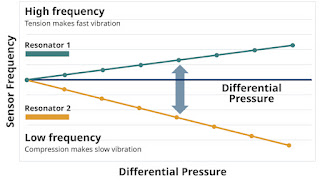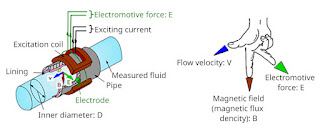Adoption of Industrial Sensors Technology
Sensors are used to measure physical, chemical, or organic amounts with great precision and repeatability. Their reliability has led to extensive fostering and use throughout various markets varying from health care to facilities to manufacturing.
Some commonly used sensors are:
Some commonly used sensors are:
Mechanical Sensors
Mechanical sensors have many dimension concepts, but detect mechanical changes and strain or stress, such as stress, flow rate, resonance, range, speed, velocity and force, as electrical indicates. For circumstances, a stress sensor that spots stress by transforming it right into an electrical indicate is also called a stress transmitter or stress transducer, but it's known as the dimension concept such as strain gauge kind, semiconductor piezoresistive kind, capacitance kind and silicon resonant kind. The noticing concept is that a sensor aspect such as a resisting aspect or a resonator is based on a slim flexible diaphragm touching the measurand. Its sensor aspects detect physical changes such as variation and stress because of the received stress as electrical changes such as resistance, capacitance or frequency.
Thermal Sensors
Thermal sensor is a sensor that spots the temperature level, heat, heat flux/capacity and thermal conductivity of measurand. One of the most acquainted kinds of thermal sensor in our lives is a thermostat, which is used to measure the temperature level of solids, fluids, and gases. While there are various kinds of thermal sensors and they have discovery capability inning accordance with the range of applications, they are primarily commercial thermocouple or thermistors. Thermocouple is based upon the concept of the thermoelectric effect. Thermistor is an oxide semiconductor whose electrical resistance differs with temperature level.
Electrical Sensors
Electrical Sensors are used to measure change in electrical residential or commercial homes in a procedure flow. Typical electrical residential or commercial homes that are measured consist of voltage, present, electrical field strength, charge presence, resistance and capacitance.Magnetic Sensors
Magnetic sensors detect changes and disruptions in a magnetic field such as flux, stamina, and instructions. Turning, angles, instructions, presence, and electrical present can all be kept track of. Magnetic sensors are split right into 2 teams, those that measure the complete magnetic field and those that measure vector components of the field. The vector components are the individual factors of the magnetic field. Along with pure magnetic field dimension, applications are broadening to various sensors in mix with present, electrical power, electronic devices, and mobile item detectors.Light and Radiation Sensors
Light and radiation sensors detect various wavelengths and regularities of light or radiation. They are used to measure x-rays, infra-reds, ultrasonic, radio waves, and acoustic regularities in a procedure industry. Recently, there is an increase in dimension using the concept of light wavelengths from the perspective of radiation elimination. For circumstances, spectroscopic evaluation can determine the components of a compound by measuring and evaluating the range of light that's produced, taken in, and spread off the compound. Utilizing the concept of communication in between particles and light, it's also feasible to obtain the form and framework of particles and their chemical information. Thereby, non-destructive and non-contact dimension and evaluation can be performed on the measurand, and the information obtained depends on the wavelength of light used.Chemical Sensors
Chemical sensors transform and detect chemical information such as structure, presence of a particular aspect or ion, focus, or chemical task right into a human understandable indicate. The chemical information may originate from a chemical response of the analyte or from a physical property of the system examined. While they have high level of sensitivity to certain components, there are components that don't have level of sensitivity. Compounds usually consist of several components, and chemical sensors are used to detect the focus and structure proportion of just the target element to be measured. Chemical sensors require high level of sensitivity and high selectivity for compound components.



